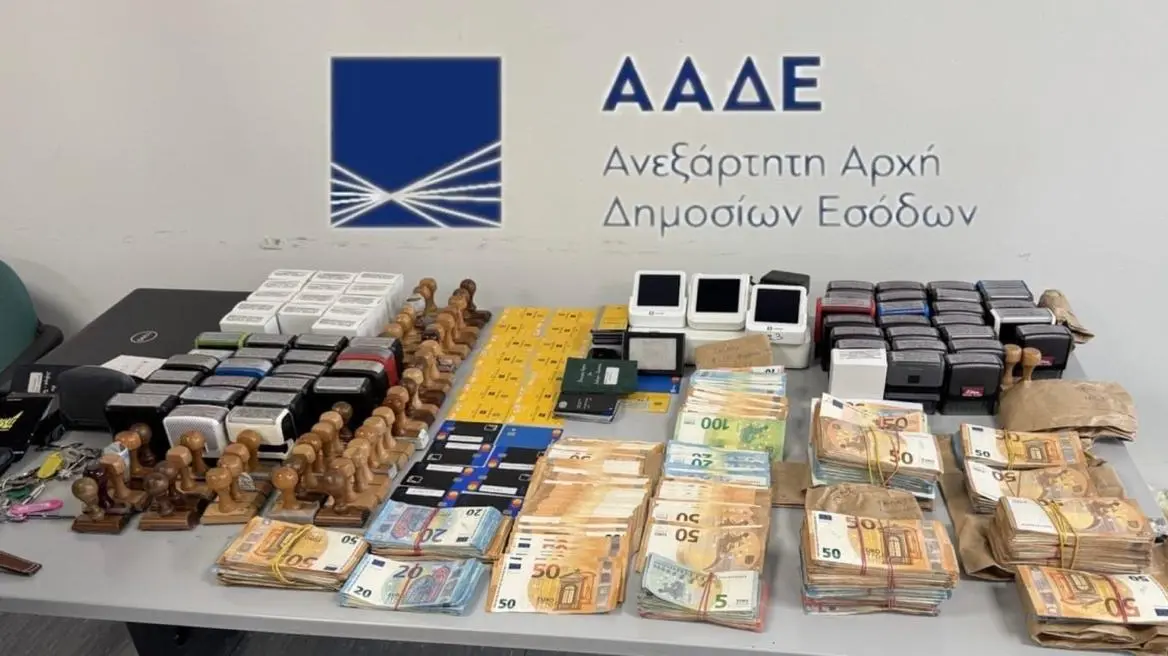First introduction for the income tax returns to be issued without taxpayers having filed their tax returns!
For nearly half a million taxpayers who had not pressed the “submit” button until yesterday, the Independent Public Revenue Authority today submitted their returns en masse, which it had pre-filled “before them for them” with as much information as it had available until yesterday.
The “experiment” is starting this year with wage earners and pensioners, but is planned to be extended to all taxpayers overall. And despite the problems it encounters in its first steps, it gives an insight into the (digital) future of taxation in Greece.
What happened
As of this morning, 1.5 million of the 7.5 million taxpayers saw upon entering Taxisnet that they had been selected for in-house tax determination. They could, however, file the return themselves.
Two out of three chose to make the declaration themselves. But about half a million taxpayers let it be filed automatically. And as of 12 noon today, they see that they can’t make an initial E1 return, only an amending one by selecting the special button. While they can now also see the tax statement issued to be paid by the end of July.
What does this mean?
While until yesterday there were no consequences for someone for not logging on to myAADE to even take a look at their return, as of today there may be, if in the next 24 days left until July 26 they rest easy – by mistake – thinking that since their return has been sent automatically, “everything is going well.”
In effect, today will reveal whether and which of the 1,429,670 “lucky” taxpayers who were notified that they have been selected to have their returns automatically filed will find that:
– The return was not filed after all and they will have to file the (original) return they thought they would not file!
If this does happen to some, it will be mainly due to two reasons:
(a) about 8,000 were notified at the end of June that they were…de-selected because new information came to the attention of the AADE and it shows that they had other income (e.g. rents, dividends, etc.) in addition to the wages or pensions they declared until last year. In such cases, the return that would have been automatically made on its own, has remained as pre-filled in the taxpayer’s taxisnet and has not been sent, in order for the taxpayer to send it himself.
(b) they may not have provided the AADE with an IBAN bank account number, as is specifically required this year by all taxpayers (aged 65 and under) in order to send the return and be able to collect any tax refunds if the tax return is a credit (as is the case for 1 in 5 returns submitted by June).
– Their return was filed, but it has errors and they are being asked to pay less tax! This may have happened if, for example, the AADE had not been informed by third parties (employers, companies, banks, etc.) by the end of June that the liable person had other income in addition to the wages and pensions that were pre-filled in the declaration until yesterday, July 1. That the AADE has not yet discovered them (wages, interest, dividends, etc.) does not relieve taxpayers of the obligation to add them – without penalty until 26 July – by submitting an amended return. And indeed, if the AADE is informed afterwards they had other incomes, and even have submitted returns, it will send weekly e-mails to both their myAADE and myAADEapp mailboxes about the changes it has been informed about them by third parties (e.g. employers, credit institutions), so that they can take the necessary actions where required.
– Their return was submitted with errors and they are required to pay more tax than they are due. This can happen mainly:
(a) if amounts covering presumptive amounts have not been included in the automatic return (code 781). In such cases, they will have to submit an amending return themselves to fill in e.g. OPEKA allowances or income from inheritance etc. that did not appear pre-filled in the return, so as not to be taxed on additional (imputed) income that they did not actually have.
(b) if they have joint accounts but the interest has not been properly apportioned and allocated between the joint holders (since the AADE cannot know what the joint holders’ actual proportion of such deposits is)
(c) if the electronic expenses (code 049) have not been correctly displayed so that the taxpayer does not pay additional tax, i.e. 22% for the amounts of expenses that should be declared, in proportion to the taxable income (imputed or actual).
Ask me anything
Explore related questions





